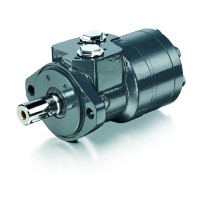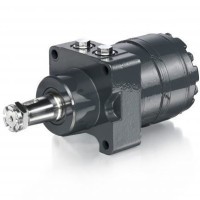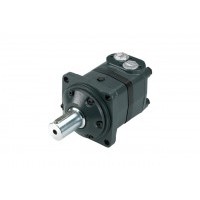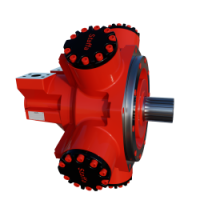
£349.64 exc. VAT
✔ In stock

£176.09 exc. VAT
✔ In stock

£221.40 exc. VAT
✔ In stock

£860.13 exc. VAT
✔ In stock
As experienced, trained professionals we understand your requirements, so if you can’t find the hydraulic motor component you need, feel free to get in contact with us.
Hydraulic motors are critical components in hydraulic systems, renowned for their exceptional power density and efficiency in converting fluid power into mechanical motion. By generating high torque at relatively low speeds, they are ideally suited for operations requiring substantial force and precise control. Their reliability and versatility make them indispensable in heavy-duty machinery, particularly in industrial systems and construction equipment, where consistent performance under demanding conditions is essential. Whether for rotary drives, conveyors, or mobile equipment, hydraulic motors offer unmatched durability and operational efficiency, contributing to optimal system performance.
This guide looks at the types of hydraulic motors, their working methods, unique attributes, and common uses. It will also include advice on selecting the right hydraulic motor and keeping it running efficiently for a long time.
Torque and rotational speed are created from hydraulic pressure and flow. As pressurised fluid moves its way through a system it makes parts of the motor rotate and this rotation drives certain attachments. The key parts of a motor generate mechanical energy from hydraulic energy.
The hydraulic system powering these motors is often paired with a hydraulic pump. While pumps convert mechanical energy into hydraulic energy, hydraulic motors do the opposite, creating motion from fluid pressure.
The first type of motor is commonly used for its simplicity, reliability and cost-effectiveness. Gear Motors trap hydraulic fluid between the teeth of interlocking cogs and the casing. This continual trapping causes the gears to rotate and generate torque. Gear motors generally come in two types: external gear motors and internal gear motors.
Due to their durability and ease of maintenance hydraulic gear motors can be seen mixer drives, crane drives, and conveyor systems, amongst others.
These motors use vanes attached to a rotor that get pushed outward against the motor’s casing when fluid enters the motor. As the rotor spins, the vanes create chambers where the fluid gets trapped. The power comes from this trapped fluid that forces the rotor to turn. A tight seal is maintained by the vanes adjusting as the rotor turns.
Vane motors are efficient, quiet and consistent torque, even when loads change. This smooth operation and precise nature means they’re used in machinery like material handling systems, winches, excavator drives and injection moulding machines.
Pistons slide back and forth inside cylinders when hydraulic fluid enters piston motors. This movement pushes a rotor to spin, producing rotational force. Piston motors deliver high torque and work very efficiently. Known for durability and handling high pressures, Hydraulic piston motors are preferred for heavy-duty equipment like roll mills, cranes, and excavators where high power and efficiency are critical. There are two types of piston motor:
Axial piston motors: Pistons line up parallel to the motor’s drive shaft. Pressurised fluid shifts the pistons, pressing them against a swash plate or cam to turn the drive shaft. These motors are idea for applications that demand efficiency, high speed, and the ability to handle high pressure.
Radial piston motors: Pistons are arranged in a circular pattern perpendicular to the shaft. The pistons are pushed outward when fluid enters the motor which drives the rotor. Radial piston motors are capable of producing high starting torque and suitable for low-speed, high-torque applications.
Knowing the difference between hydraulic motors and hydraulic pumps helps when building a system. A hydraulic pump takes mechanical energy and changes it into hydraulic power by pushing fluid through a system. A hydraulic motor does the opposite - it uses hydraulic power to produce mechanical force, often to turn a shaft.
While hydraulic pumps are rated by displacement and pressure, hydraulic motors are typically measured by torque, speed, and power output. These distinctions help users choose the best component for specific applications.
Many things decide how a hydraulic motor works well, like displacement, torque, and speed:
Hydraulic motors are incredibly versatile and are found in a wide range of sectors including industrial, agricultural, and construction. Some typical uses can include:
Proper maintenance is vital for keeping hydraulic motors in top condition. Key tips include:
When choosing a hydraulic motor, consider the following factors:
The hydraulic motor industry keeps changing, with progress in efficiency, precision, and environmental impact. Some trends include:
Hydraulic motors matter a lot in many industries like cranes, excavators, and mixers. Whether buying or just learning about them, understanding types, benefits, and upkeep needs really helps in choosing the right one.
We are leading suppliers of high quality, dependable and low-cost hydraulic motors. Due to our long-lasting relationships with the major hydraulics manufacturers, you'll be able to benefit from tier 1 pricing for many hydraulic components. So not only will you be safe in the knowledge your hydraulic system is made to the rigorous standards you would expect, but it will also be cost-effective.
We have a vast catalogue of hydraulic components and we stock hydraulic motors including:
Please don’t hesitate to contact us if you have any questions about our extensive range of hydraulic motors or hydraulic systems in general. Our friendly and informative team is always on hand to help you find the perfect component, including high-quality hydraulic piston motors, for a wide range of industrial applications.
Hydraulic motors are used to convert hydraulic energy into mechanical energy, powering heavy machinery across industries such as construction and manufacturing. Their applications include cranes, excavators, mixers, and irrigation pumps.
The primary types of hydraulic motors are gear motors, vane motors, and piston motors. Each type is suited for specific tasks within hydraulic systems based on their design and performance characteristics.
Gear motors are reliable and efficient, ideal for lower speed and higher torque applications. Vane motors offer smooth operation and versatility, performing well in medium-pressure tasks.
Piston motors excel in high-pressure scenarios, providing high efficiency and torque. They are durable under pressure and ongoing research is improving their performance and reliability.
Fixed displacement motors deliver consistent performance because their displacement does not change. They are suitable for applications requiring steady torque and speed.
Variable displacement motors offer greater flexibility by allowing the displacement to change, which adjusts the motor's speed and torque according to the operating conditions.
Efficiency ensures that hydraulic motors convert the maximum amount of hydraulic energy into mechanical energy, which is critical for reducing energy consumption and operational costs.
Hydraulic motors offer better torque and efficiency in high-pressure conditions and are suitable for heavy-duty applications. Electric motors are preferred for precise control and various speed applications but may have higher initial costs.
Key factors include required torque and speed, type of hydraulic system, operating conditions such as pressure and flow, and ensuring compatibility with the hydraulic pump.
Hydraulic motors require regular maintenance to extend their lifespan and performance. Gear motors are simpler to maintain, while piston motors may need more complex care. Predictive maintenance techniques help minimise downtime and costs.
Hydrastore use cookies to make the site run smoothly, enhance the content and to gather information on how you use it in order to improve and personalise your experience. See our Privacy Policy










